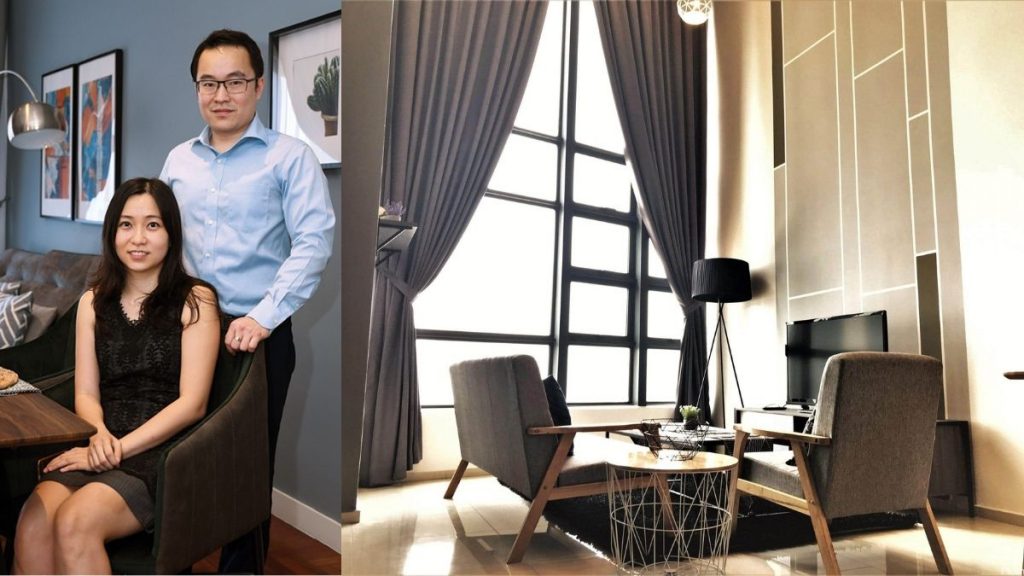In 2016, siblings Yap Zer Ken (Ken) and Yap Vin Li had a spare studio apartment as part of their dual key home in Kuchai Lama.
Dictionary Time: A dual key apartment is one apartment that is divided into two dwellings. Both dwellings are typically self-contained and will include a bedroom, bathroom, kitchen and living space.
Canstar
“We decided to test what this whole Airbnb thing was about,” Ken said.
To their surprise, the property was booked on the same day they listed it. After a week of full bookings, the two decided to take the plunge and rent a property in KLCC to re-rent to guests.
“As we started telling our friends about what we were doing, they asked if we could help them host their properties as well,” he said.
Before they knew it, they had large a number of listings on their hands.
All these units, however, were either unfurnished or not done up to their standards. So, they worked on its interior designs to polish them up.
Building The Foundation
“I think we were at a crossroads of whether we wanted to make this something big or not 4 months in,” said Ken.
Making good money from helping their friends out, they knew that if they were to grow bigger, they’d have to invest everything into the business.
“Our main ah-ha moment was essentially the fact that people kept looking for us to help them run their units and we knew that we were on to something with the organic demand that we were experiencing,” he said.
So, they launched Plush Services, a property management company.
It aims to provide high-quality homestays for guests and make hosting easier for homeowners who happen to have dormant properties.

Instead of outsourcing, Ken explained that everything from interior design to guest concierge is handled by their team of 42.
Though it was more costly to hire staff with backgrounds from hospitality and maintenance industries, the siblings wanted more control of the quality they were providing to clients.
What sets them apart from companies like Anthill Living, who focuses on renting rooms out to students and young working adults, for example, is how Plush Services chooses to list their properties as hotels on Airbnb.
They wanted to bridge the gap in a market of homeowners who don’t have the time to look after their properties for short-term leasings, like homestays.
“Hosting does take a full team in essence and because of that it leads to homeowners and developers unable to capture this potential revenue stream,” said Ken.
Pricing The Structure
By the end of this year, Ken estimates a total of 8,000 to 9,000 rooms would’ve been rented out.
Most of their listings consist of individual homeowners with extra properties lying around.
“Recently, we have been engaged by more developers to manage their properties so their unsold units are given guaranteed returns,” said Ken.
The cost for Plush Services’ interior design is absorbed by the homeowners themselves. Ken said that the team is price conscious so it doesn’t cost their clients an arm and a leg.
It’s also done so that homeowners can still get a good yield from their investments; targeting a 4% to 5% ROI for their clients.

Speaking of investments, the team has some criteria in how they price the properties listed on Airbnb.
This involves looking at its location and their competitor’s prices.
From there, they’ll use a pricing algorithm to determine an optimised rate based on an area’s demand.
“Usually, we take into account the occupancy of our closest competitors coupled with how booked out our units are. Then, we adjust our pricing to find the sweet spot to make the best returns for our guests,” he said.
After deducting fees for utilities, cleaning, and internet bills, Ken explained that Plush Services will take 30% of the total monthly profits earned.
Shifting Priorities

Through this pricing structure, the company has brought in RM10 million in revenue in 2019.
When the pandemic hit, those in the hotel industry suffered. And so did Plush Services.
“We can see that bookings have dropped by 60% to 70%, even 80% in some locations,” Ken shared.
They shifted priorities to cut costs within their business without letting go of their confirmed staff.
With bookings taking a hit, the team is now focusing more on interior design projects and exploring other options for business revenue.
They’ve now launched a spin-off company called Kapas Living that focuses on selling bedsheets, and have also partnered with HCK Group to manage their new co-living project.
Featured Image Credit: Yap Zer Ken and Yap Vin Li, co-founders of Plush Services











